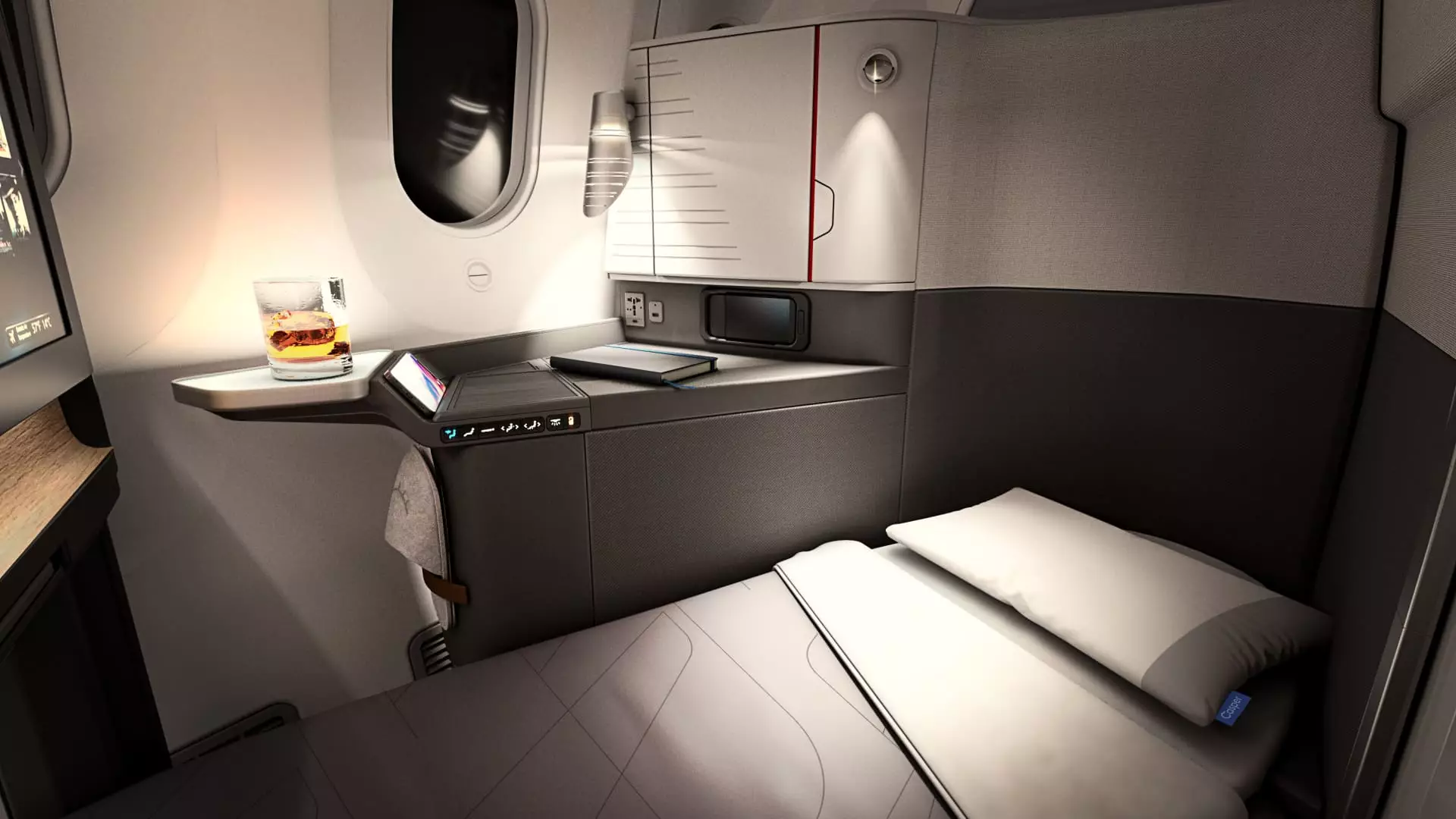In an era marked by increasing consumer expectations, luxury air travel has taken on new significance. American Airlines’ latest initiative—the introduction of new suites with sliding doors—demonstrates a strategic pivot towards attracting high-spending customers. While other airlines have led the way with innovative seating and service upgrades, the timing of this rollout is pivotal. The competitive landscape has evolved; airlines must not only enhance comfort but also cultivate an experience that resonates with luxury travelers. American’s bold move is likely to reshape customer loyalty and set a new standard in the industry.
Design Delays: A Tale of Supplier Challenges
It’s intriguing to note how the intricate design of modern first-class seats has inadvertently hindered the delivery pipeline of new aircraft. Initially anticipated for launch in 2024, delays due to supplier constraints reflect a broader issue within the aviation sector. As American Airlines unveils its new suites aboard the Boeing 787-9, it becomes evident that the complexity of these designs carries both risk and reward. The indulgent layouts offer an unparalleled travel experience, but the delays underscore the growing pains of an industry that is desperately trying to innovate.
Pricing the Experience: Is It Worth It?
However, with luxury comes a price. A roundtrip business-class ticket from Philadelphia to London costs a staggering $5,342, prompting the question: is the opulence justified? The perceived value lies in the combination of comfort, novelty, and exclusivity that premium airlines promise. But as prices escalate, so too does consumer skepticism. American Airlines is shifting its focus away from traditional international first class in favor of a more streamlined, yet luxurious experience. This move not only modernizes its fleet but also hints at an expectation that a more competitive pricing structure could prevail if the luxury market saturates.
Industry-Wide Ripple Effects: A New Norm
The introduction of sliding doors is not merely an American Airlines phenomenon, but a defining feature across the aviation industry. Competitors like JetBlue and Delta Air Lines have also begun to integrate these luxurious features into their high-end cabins, making sliding doors the new hallmark of elite travel. This shift speaks volumes about the market expectations for privacy and comfort among premium travelers. As this trend accelerates, it cultivates a sense of urgency for carriers to adapt or risk losing their foothold in the luxury sector.
Holistic Upgrades: More than Just Seats
Beyond the swanky new suites, American Airlines is committed to enhancing the comprehensive travel experience. The introduction of free Wi-Fi for loyalty program members is a notable enhancement that acknowledges the changing demands of modern travelers. While airlines have historically focused on physical comfort, they are now recognizing that connectivity is equally crucial. This holistic approach not only enhances customer satisfaction but also aligns American with the industry’s direction towards increasingly tech-savvy travelers who value seamless integration of services.
American Airlines’ new suite offerings are positioned to be a transformative force in luxury air travel. By embracing innovation, navigating supply chain hurdles, and responding to evolving customer expectations, the airline is setting a benchmark that rivals will inevitably need to meet or exceed. The long-term impact of these decisions could redefine air travel and solidify American’s place at the forefront of the industry.

